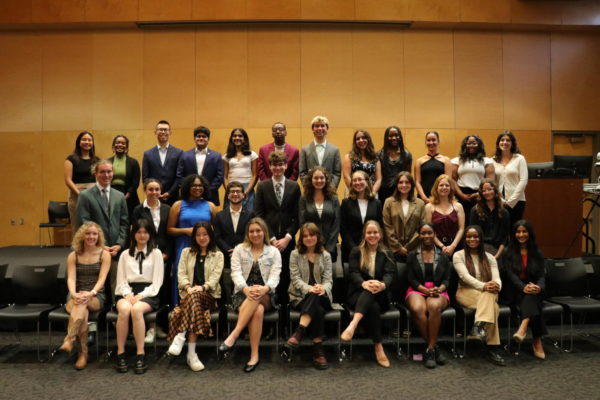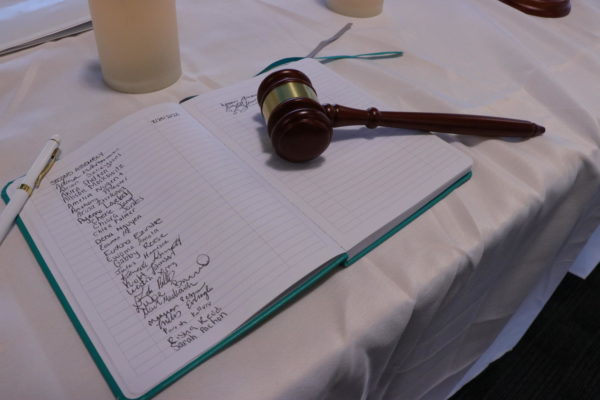
Tulane Undergraduate Assembly faces challenges familiar to its predecessor, Undergraduate Student Government, in a lack of student engagement and unclear function on campus. Delegates hope though, with the redesigned structure of student government promoting equality and delegate initiative, that TUA can be a resource for student advocacy this year.
TUA co-chairs Akira Shelton and Zoe Freise said they both see the evolution of TUA as similar to that of a human. In its first year, TUA was figuring out how to sustain itself, and now as a toddler in its second year, the body can begin to walk and speak.
“It’s time to let our community know that we’re here,” Shelton said. “We did a lot of very impressive things last year, but a semester is just such a small frame of time in comparison to a full year. And now for the first time, we have a full school year to do more.”
Eleven first-year delegates were elected or selected to serve on the body in elections last week. Shelton said she is excited to see a new generation of student leaders join TUA that were not a part of USG’s abolishment.
“It’s very nice to see people who are brand new to the body, brand new [to] Tulane,” Shelton said. “We’re just so excited and eager. It just makes me really happy and I’m proud of [the incoming delegates].”
A main focus of TUA this year is increasing the organization’s recognition on campus. Freise said one flaw of USG was its insular organization that made little effort to engage with the student body at large. TUA committees are now encouraged to share information on social media and table on McAlister Drive to reach students.
“We redesigned our committee structure to ensure that anybody on campus would be able to participate,” Freise said. “In addition to that, simply having assemblies open to the greater [student] body to see. Senates were not promoted under USG as something non-representatives would be able to go to.”
Assemblies are open to all students to attend, share ideas and even join committees. Shelton said she would prefer to have more students on committees than TUA delegates themselves to gain the most diverse perspectives.
“We really want students to participate in our assemblies so that we can get more student voices directly,” third-year delegate Letitia Xiong said. “TUA’s assembly is a very welcoming place. [The] student body should come and join us, bring out their ideas to us and see what we are doing. We want to be as transparent as possible.”

Shelton said that one other significant effort of TUA this year will be increasing student civic engagement, especially with elections coming up this fall. TUA voted to establish a Civic Engagement Committee last Tuesday to host voter registration drives and bipartisan education efforts.
Another significant departure from USG is that TUA no longer has control over the budgets of student organizations. Now student organizations’ finances will be handled by the Student Organizations Council, which has ties to TUA but is not governed by the body, according to Shelton.
Both Shelton and Freise said they were hesitant to run for the co-chair position after their experiences in the USG hierarchical system and the pipeline from the Freshman Leadership Program to USG elected positions. After speaking with former co-chairs DaSean Spencer and Jay Hartley, they were convinced to run.
“Watching the student body president be such a glorified position, I [didn’t] want to get all caught up in the mess that was that hierarchy,” Freise said. “After many discussions with Jay, DaSean and Akira, I was like, okay, I guess like I do have a lot of experience and I really want to see this body succeed.”
Despite its relative anonymity on campus and a vague set of powers, TUA represents a group of passionate students eager to begin work improving the Tulane community.
“For us, this is not a resume building organization,” Shelton said. “We want to do good with the privileges that we have as individual students, but also as delegates, to help everyone have the best Tulane experience possible.”


